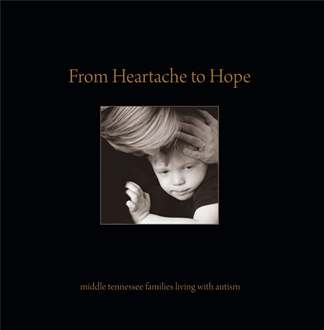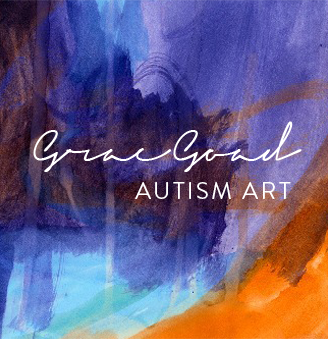by Leisa A. Hammett, www.LeisaHammett.com
Outside and overhead, we could hear the circling clop-clop of television news station helicopters and the occasional zoom of Vanderbilt Medical University LifeFlights. Inside we were trapped in a surreal universe, disconnected from all forms of media but our cell phones–if our particular service provider's tower was not one of the ones just submerged by Nashville's historic 1000-year flood. We were powerless. Of electricity. And of feeling–in our sense of being able to change the state of things. Powerless to change the circumstances that had literally deluged us with
14-plus inches of constant flash flooding rains for two, weekend days.
As the rains continued for the second day, it was cool. When they stopped the next day, temperatures rose higher, climbing into the upper 80s. The contents of our warm, refrigerators–shut tight–began to spoil. At first we could not exit toward town. Then, we could only go so far. The rains had flooded the parking lot of our grocer, our mutual island of civilization. The waters rose within four feet of the nearby traffic lights. Rumors were all we had. And rumors were rampant. Our area's substation was submerged. Our power would be off possibly two weeks, some said. We could head, oddly, west then east out of our water-locked community. But, Highway 96 was said to be a parking lot, taking one neighbor two hours to inch a mere five miles to the Natchez Trace Bridge.
We were among the lucky ones. Our neighborhood and maybe one other were said to be the only two not affected in our particular western burb.
Publix was our savior, powered by emergency generators. Our only source of food. Employees worked with speed, diligence and the cheerful spirit for which they are known. Many of them were likely to also be affected by the storm. We sought refuge inside the cool store, stocked by 18 wheelers that managed to negotiate the maze created by three flooded interstates. Neighbors, former teachers and strangers whose faces we knew from the Y, former churches and elsewhere, sat in the store's for-sale lawn chairs while charging cell phones with store outlets. Often I asked: "Where do I know you from?" "Oh, yeah." "Well, we're all one now, aren't we?" I said to one of the familiar faces. The chorus of stranded and shell-shocked– a captive audience–standing in the store lobby half-chuckled then nodded in solemn agreement with my overheard comment.
Just inside: Fresh food! Sparse but there. I bent and reached into the cooler for the strawberries–two for five dollars. And then I paused, deciding to leave one for another family. Alongside me, another mother–a stranger–also bent and reached, and then suddenly stopped to look me in the eyes and ask how I was doing. She'd be the first of a number of strangers who seemed sincere in the question we all faced.
While tensions were palpable and running high, it was overridden by the spirit of generosity and concern for others that were in the same predicament or worse. And for many it was/is much, much worse. My daughter, who has autism, and I suffered mere inconveniences of heat, no power, a threatened water supply and little sense of connection to what was really happening in this mess in which we were living.
The frenetic energy of the grocery-bazaar atmosphere and the broken routines were cranking her anxiety levels and the heat was rising. She seemed incapable of understanding it all. When we could finally escape another route other than 96 and when the nearest interstate was finally clear–according to my outside cellular phone sources–we claimed the last room in a suburban hotel closer to town. There, again, the faces checking in alongside me were familiar in this good-sized city that boasts a small-town feel. Other tired faces were unfamiliar and I'd learn they were among the 2000 displaced guests of the flooded Opryland Hotel, in addition to the displaced downtown Hilton guests.
For dinner, unapologeticaly, I declared a menu of red meat, a potato and a large green salad. Comfort food. Normally semi-vegetarian, my freezer failed to offer the grilled feasts of my neighbors' who communed in our cul-de-sacs. And news. I wanted to watch the news.
Back home, the power is on. Showers are rationed. But the fridge is stocked with fresh produce. My meals are hot. We are safe. Dry. Tired. Grateful. And sad for what our beautiful city has lost in its tourism livelihood downtown and the extensive damage that literally ravaged our city. Saddened for families who lost loved ones, their homes. So many so nearby. The haul back will be long. May we be steadfast in spirit.





Such a touching post highlighting your personal story as well as the bigger picture; a picture of how greater Nashville will feel the affects of this flood for quite some time.
I smiled when you mentioned folks charging their cell phones in the grocery. I hadn’t thought of that!
We have escaped the flood primarily unaffected, with the exception of the water rationing to which you referred.
Here’s hoping Nashville continues to “heal” after this catastrophic event.
Sue, thank you so much for posting a comment and for your positive support on Facebook as well. If I did not tell you I share your photorgraphy link on Nashville Women Who Blog and also tweeted it.
I even thought of you yesterday since you are relatively new here.
I was just told that our beautiful symphony center has been condemned. We had a cousin marrying there in three weeks….
Thanks again….a blog like this is really putting myself out there, so I appreciate the affirmation.
Surreal does seem to be the word that captures that Entirety of what has happened. We had basement flooding—the sump pump did eventually catch up with the surge–and some leaks in the main roof. A mere scratch compared to the suffering and loss of others. And, those losses continue to unfold. Life on the physical plane. Our city will heal from this; it will take time, vision, and a strong heart. (not to mention, a whole lotta cash)
Glad that you and yours are safe and well.
Nancy, so sorry to hear this. Your words, well put. Yes, I thought the same thing as I wrote surreal. It seemed ineffective and surface but there seems to be no words to explain, as you say, the gravity and sudden-ness
Leisa, So glad to hear that you and Grace are okay and survived without damage (except for that rotting food). I’m so sad for my beloved Nashville–have been blogging and tweeting about it as much as I can. Thanks for this touching post.
Thank you, Charlotte. You were on my email to-respond list. The damage to our wonderful city is heartbreaking. It’s especially comforting to know that others outside of our state are aware as WE FEEL NEGLECTED BY THE NATIONAL MEDIA!
Figured you were probably without power! I’m angry at how neglectful the national media has been, which is why I’ve been blogging and tweeting up a storm. Take care and keep me posted if you hear anything I can reblog or tweet about.
You, go, girl! I had a bit of a hard time deciphering was it a chip on my shoulder or what, tho I know I’m not alone in feeling this way. The Fiance talked about the CNN coverage being the best but this was all while I was trapped and had no access. As I write, one of the first things I wanted to do was get to a t.v. set (and I hate t.v.!) And then, wow. Slap. Disappointment. C’mon. Thank you!
Glad you are safe, Leisa. One of the editors on my team lost everything when her house was flooded by the Harpeth River in the Morton Mill Road area of West Nashville.
Thank you, Yvonne. We are near there and I knew they’d be under. Long history of that area flooding. 🙁
Leisa, So sorry to hear of the devastation in your city. I’m so glad you and your family are okay.
When I was a teenager, I lived in Rexburg, Idaho when the Teton Dam broke in 1976. There’s nothing like a flood–I can still remember the sights and smells as we watched the waters recede. There was mud everywhere. I also vividly remember driving around the streets and seeing broken jars of bottled fruit from people’s home storage everywhere. What a random memory.
I wish you and yours the best of luck as you recover.
Hi, Leisa. Enjoyed your blog, and glad to hear that you & Grace are safe and your home was not flooded. You articulated well the way Nashville is feeling about the devastation and how our community bonds together to overcome natural disasters. Thanks for sharing, and thanks for being considerate of others at a time when you could be grouchy and snappy. That shows your strong character.
Thanks, Anne. The Fiance has taken the brunt of my snappiness. 😉 Here’s what I wrote on my social media client site this morning about how I am feeling now: :
My heart is warmed by the outpouring of compassion, but I am also reminded how events like this (yeah, there is no real “like this” here) have a residual emotional impact.So, while I feel a bit guilty talking about this in myself since I was not devastated materially.
I found myself brainfogged for days now. Disorganized and unable to process and order and organize myself, my thoughts, my to-do list. I found myself snappy and impatient at The Fiance. There is a tenor of uncertainty and tension in the air.
Even though some of us are not personally impacted by the devastation, in ways we all are–our water supply, our necessary rationing, our travel here in my part of town–commutes out sometimes taking hours. Our concern for others and our efforts to help them, our routines out the window. Again, please hear me, I know this is small stuff compared to real loss. But it’s still emotionally impacting.
Others experiencing similar feelings, thoughts, brain-fog, disorganization?
Nashville this week felt slighted by the national media. Finally Anderson Cooper 360, in all his yumminess, was on the scene in my hood, even–though I didn’t see him. He reported live last night. He admitted they did not realize the extent of the devastation and apologized that we should have been top story all week. THANK YOU!
And thank you, Boston Globe. These pictures capture things well: http://www.boston.com/bigpicture/2010/05/flooding_in_tennessee.html
Also good coverage from the Nashville Scene: http://www.nashvillescene.com/nashville/the-flood/Content?oid=1526360
Glad to see Nashville is finally getting the coverage it deserves! I was telling a friend about the floods today and she was totally unaware of them….
Apr15Donna Smith I so enjoyed meietng you and hearing about your bestfriend, I have watched you since I was a lil girl and I have to say you are as sweet as I always thought you were on Days.. I’m still reading your book and I think its great! Congrats to you and Lynne And I’m so GLAD you are back on DAYS!!!